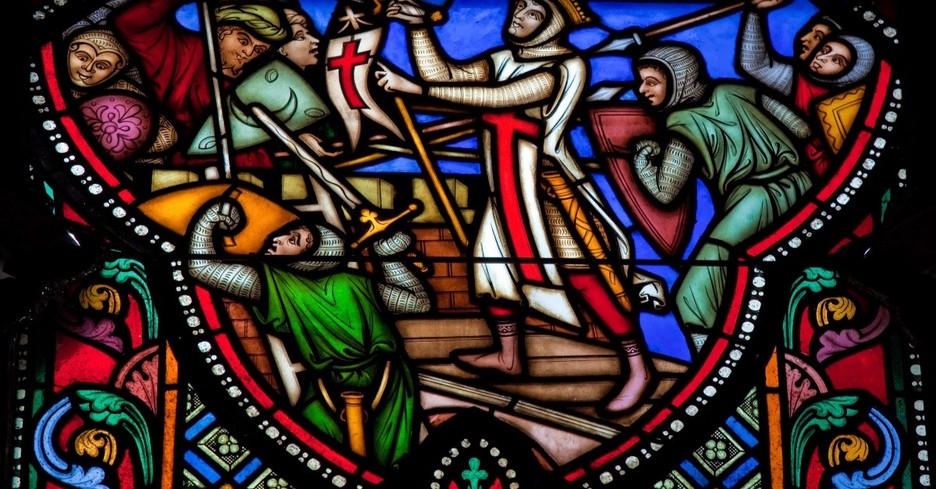
These events represent some of the major developments in 13th-century Christian history, including the ongoing Crusades, the growth of religious orders like the Dominicans and Franciscans, and efforts by the Church to combat heresy through the establishment of the Papal Inquisition.
13th Century Christian History
1209-1229: The Albigensian Crusade
- The Albigensian Crusade was launched by the Catholic Church against the Cathars, a heretical Christian sect in southern France. It aimed to suppress heresy and extend papal authority.
1215: Fourth Lateran Council (Continued)
- The Fourth Lateran Council began in 1215 during the 12th century and continued into the early 13th century. It addressed various doctrinal and disciplinary issues within the Church.
1216: Foundation of the Dominican Order
- Saint Dominic founded the Dominican Order (Order of Preachers) to combat heresy and promote religious education.
1223: Franciscan Rule Approved
- Pope Honorius III approved the rule of Saint Francis of Assisi, officially recognizing the Franciscan Order.
1226: Death of Saint Francis of Assisi
- Saint Francis of Assisi, the founder of the Franciscan Order, died in 1226 and was later canonized as a saint.
1229: The Treaty of Paris
- The Treaty of Paris concluded the Albigensian Crusade, with southern France coming under the control of the French monarchy.
1231: Papal Inquisition Established
- Pope Gregory IX established the Papal Inquisition to combat heresy, particularly the Cathar heresy, using inquisitors and tribunals.
1248-1254: Seventh Crusade
- The Seventh Crusade, led by Louis IX of France (Saint Louis), aimed to recapture Jerusalem but failed.
1254-1259: Eighth Crusade
- Saint Louis led the Eighth Crusade, failing to achieve its objective of capturing Jerusalem.
1260: The Battle of Ain Jalut
- The Battle of Ain Jalut in Palestine marked a significant event as the Mamluks defeated the Mongols, preventing further Mongol expansion into the region.
1274: Second Council of Lyon
- The Second Council of Lyon, convened by Pope Gregory X, aimed to reunite the Eastern and Western Christian Churches but did not achieve its goal.
1274: Death of Thomas Aquinas
- Saint Thomas Aquinas, a prominent theologian and philosopher, died in 1274. His writings would have a lasting influence on Catholic theology.
1294-1303: The Avignon Papacy (Papal Exile)
- Pope Boniface VIII's conflict with King Philip IV of France led to the papacy being moved to Avignon, France, where it remained until 1377.
We are presently in the high Middle Ages. As a Protestant believer, I absorbed a common attitude among us: How did the church survive the Middle Ages? How could the church sink so low? Why did God allow the papacy to develop as it did? How could both doctrine and practice become so corrupt?
I must now admit that the more I learn of this period, the more I marvel that they did as well as they did. In every generation, some godly men and women followed Christ with a devotion we would look far to find today. The medieval church met almost every barbarian threat across Europe, bringing brutal peoples to some level of Christian understanding and practice.
I dreamt recently that we 20th-century Christians and churches will have far more to answer for than our medieval 'dark age' predecessors at the Great Judgment when the Lord considers the light we each had. -- Ken Curtis
• This century is often called the high point of the Middle Ages, with the papacy reaching its greatest power, scholastic philosophy reaching its zenith, and Gothic Cathedrals towering over the landscape.
• Crusading cause and spirit continues.
• 1204--Europeans, with Vienna taking the lead, capture Constantinople.
• 1212--Children's crusade
• Mendicant orders of friars were established, another effort at church reform. These reemphasize the importance of the sermon.
• 1209--Francis of Assisi establishes Franciscans (canonized 1228).
• 1220--Dominican Friars established as a teaching order, later entrusted by the Pope with the Inquisition. Some became missionaries to Central Asia, Persian Gulf, India, and China.
• Salisbury Cathedral built within one lifetime (1220-1258), a rarity for medieval cathedrals!
• With Pope Innocent III (1198-1216) the papacy was at the height of its powers. Affirmed all churches were under his control. Developed theory of papal power that allowed him to interfere in political affairs of nations. Approved 4th Crusade. Established Dominicans and Franciscans. Instituted Inquisition, joining powers of church and state to punish heretics.
• 1215--Fourth Lateran Council summarized and reinforced medieval doctrines and practices.
• Thomas Aquinas summarizes Scholastic Theology in his Summa Theologica, 1271, writing, intelligo ut credam "I understand, in order that I may believe."
Photo: © Getty Images/Jorisvo


.jpg)
.jpg)